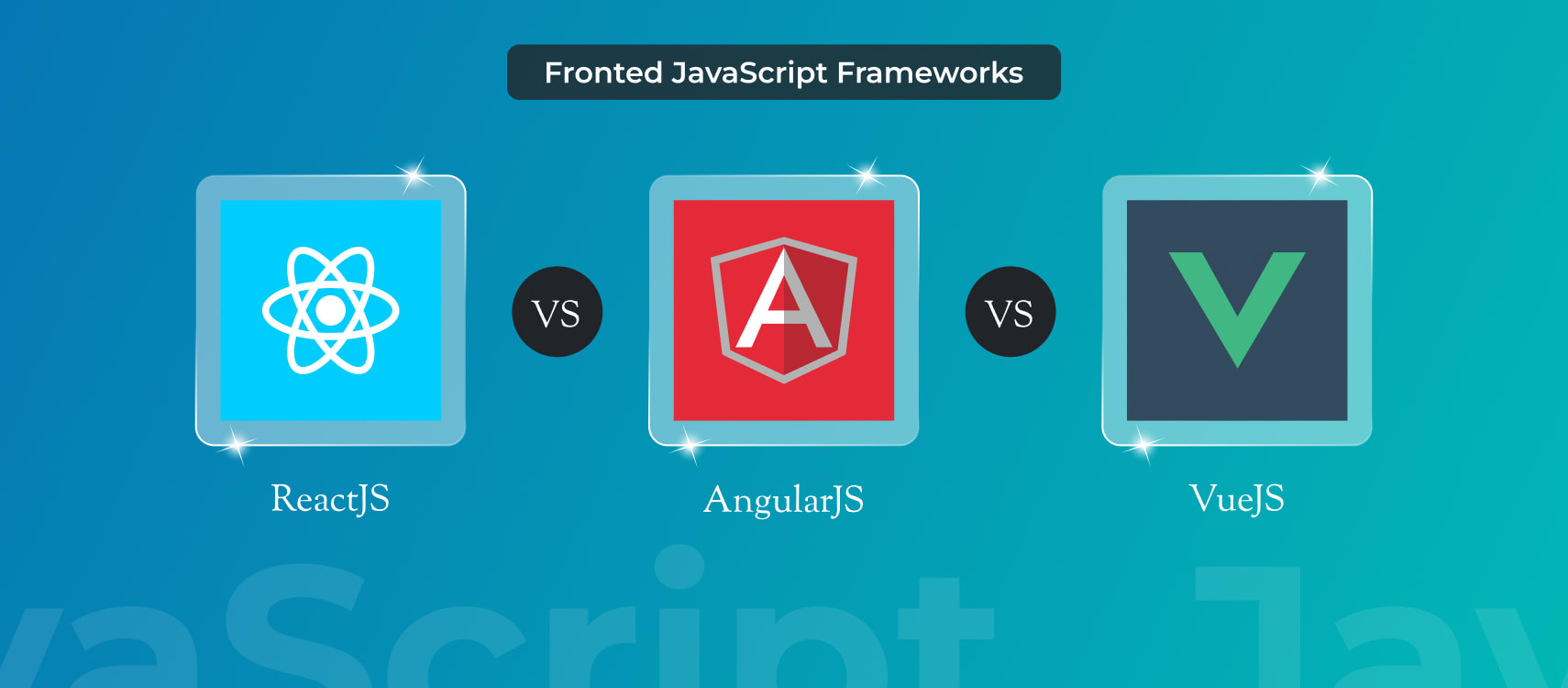Table of Contents
- Framework Comparisons
- Pros & Cons
- ReactJS
- AngularJS
- VueJS
- Ending Notes
When it comes to JavaScript frameworks,ReactJS, AngularJS, and VueJS each have their own strengths and weaknesses. ReactJS stands out with its simplicity, virtual DOM, and vast ecosystem, although it requires time-consuming initial setup. AngularJS offers a comprehensive framework with powerful features, but has a steeper learning curve and can be complex for beginners. VueJS shines with its ease of use, lightweight nature, and balanced approach, although it may have a smaller community compared to the other two.
In terms of simplicity, performance, community support, flexibility, learning curve, and libraries, these three frameworks are distinct to each other in many regards. Understanding these factors can help you make an informed decision and select the framework that best suits your project requirements.
Framework Face-Off: Key Comparisons
-
High-level Abstraction and Productivity
AngularJS can be complex and confusing due to its syntax, making it slower in terms of development time. ReactJS, on the other hand, is relatively simple and easy to understand, but it takes time to set up a project. VueJS stands out with its simplicity and quick project setup, thanks to its MVC model and data binding feature.
-
Size and Loading Time
AngularJS is a heavyweight framework, resulting in longer loading times. ReactJS falls in between AngularJS and VueJS in terms of size, while VueJS is lightweight and optimized for faster loading, especially on mobile devices.
-
Human Resource and Recruitment Challenges
Finding skilled JavaScript developers can be challenging for many companies. If your team already has HTML developers with existing JavaScript expertise, AngularJS and VueJS may be better options as they require less JavaScript expertise compared to ReactJS. AngularJS has a slightly higher learning curve, but once developers become familiar with it, they can adapt to different project requirements and conventions. ReactJS, on the other hand, may take more time for developers to get used to architectural decisions and project setup. AngularJS is particularly suitable for developers who prefer object-oriented languages over JavaScript.
-
Components repository
All three frameworks are component-based, enabling high reusability across projects. AngularJS components differ as they use TypeScript, which adds a learning curve for JavaScript developers. ReactJS and VueJS excel in handling small, stateless functions, delivering output based on input. ReactJS integrates UI templates with JavaScript logic, allowing for reusable and testable components. AngularJS uses Angular-specific syntax for templates, while VueJS offers convenient single-file components with built-in support for features like syntax highlighting and CSS preprocessors.
-
Access to Equipped Libraries
AngularJS provides a ready-to-use functionality and prescribes a specific app structure, making it more of a framework than a library. However, this restrictiveness can be a limitation for experienced developers. ReactJS and VueJS shine in their flexibility and come with robust libraries that can be paired with various packages. While this flexibility gives developers more control, it also requires responsible programming. ReactJS, in particular, lacks guiding rules, putting the onus on developers to make architecture decisions and potentially introducing mistakes. VueJS strikes a balance by offering a clean and lightweight approach while keeping programming efficiency and minimizing DOM-related difficulties.
-
QA Testing
ReactJS has well-established testing mechanisms like Jest and Mocha, providing reliable options for evaluating finished work. AngularJS also includes a good testing mechanism with frameworks like Jasmine, offering multiple ways to write tests and assertions. VueJS lacks a comprehensive testing guideline but can work well with frameworks like Karma and Jest.
Overall, each framework has its advantages and considerations, and the choice depends on the specific needs and preferences of the project and development team.
Pros & Cons: ReactJS vs AngularJS vs VueJS
When choosing a JavaScript framework for your project, it’s important to consider the pros and cons of each option. Here, we highlight the strengths and limitations of ReactJS, AngularJS, and VueJS:
ReactJS
Pros
- Simplicity and ease of understanding for developers.
- Large and active community support.
- Virtual DOM for efficient rendering and performance.
- Comprehensive ecosystem with a wide range of libraries and tools.
- Excellent support for component-based development.
- Strong testing capabilities with frameworks like Jest.
Cons
- Initial setup can be time-consuming.
- Steeper learning curve for beginners.
- Lack of clear architectural guidelines, requiring developers to make decisions.
- JSX syntax may feel unfamiliar to some developers.
- Limited support for server-side rendering which can be achieved only with additional tools.
AngularJS
Pros
- Comprehensive framework with ready-to-use functionality.
- Two-way data binding for easy synchronization between views and models.
- Strong support for large-scale applications and complex scenarios.
- Built-in dependency injection for modular and maintainable code.
- Powerful templating system with directives.
- Good testing capabilities with frameworks like Jasmine.
Cons
- Steeper learning curve compared to other frameworks.
- Complex syntax and concepts can be overwhelming for beginners.
- Less flexibility and freedom compared to ReactJS and VueJS.
- Larger file size and slower loading times.
- Migration from AngularJS 1.x to Angular (2+) can be challenging.
VueJS
Pros
- Easy and quick setup with a gentle learning curve.
- Approachable syntax and intuitive design patterns.
- Versatile and flexible framework suitable for small to large-scale projects.
- Excellent performance with a small footprint.
- Comprehensive documentation and helpful community support.
- Single-file components for encapsulated development and better organization.
- Smooth integration with existing projects.
Cons
- Smaller community compared to ReactJS and AngularJS.
- Limited ecosystem of libraries and tools compared to ReactJS.
- Less suitable for extremely large and complex applications.
- Less emphasis on architectural guidelines, requiring careful decision-making.
- Testing guidelines and frameworks are not as well-established as ReactJS and AngularJS.
Ending Notes
ReactJS, AngularJS, and VueJS are three popular JavaScript frameworks with their own unique features and characteristics. Ultimately, the choice of framework should be based on the specific needs of your project, the expertise of your team, and the trade-offs between simplicity, performance, flexibility, and community support.










